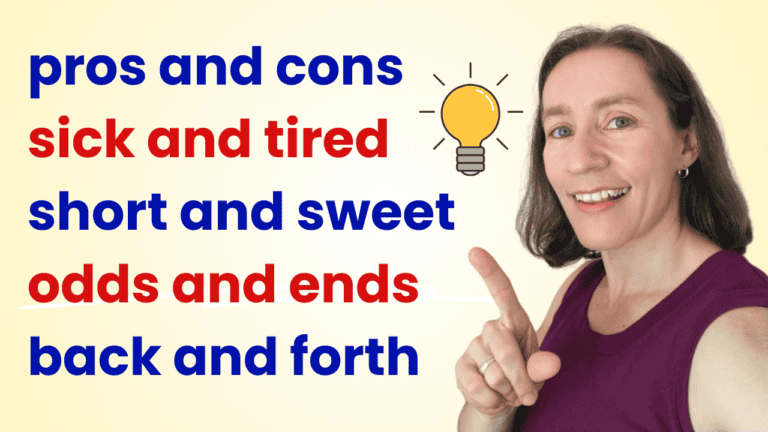
William Shakespeare was a poet and playwright who lived in the 16th century. He is regarded as one of the greatest writers in the history of the English language. You might know him as the author of the famous “Romeo and Juliet.”
Many of the English idioms we use to this day were invented or popularized by Shakespeare – you’ll learn eight of them in this lesson! To learn more idioms, join my 300+ English Idioms Course.
at/in one fell swoop
= all at once, in a single and sudden action
Let’s say you have 100 unread e-mails in your inbox. If you select them all and delete them with a single click, you have deleted them in one fell swoop – with a single quick action (not slowly or one by one).
a sorry sight
= someone or something that is unpleasant to look at, or makes you sad to look at
Imagine there’s a park in your city that used to be beautiful, but due to lack of maintenance it is now dirty and full of trash. You could describe that as a sorry sight.
a foregone conclusion
= a result that is unable to be avoided
If surveys show that 90% of the population supports one candidate in an election, then it is a foregone conclusion that this candidate will be elected.
the be-all and end-all
= the very best and most important thing, which makes everything else insignificant
We often use this expression in the negative form – “it’s not the be-all and end-all” – to say that something is not the most important or the only thing that matters. For example, when it comes to grades, final exam results are not the be-all and end-all – the teacher also considers all the quizzes, homework, and student participation throughout the course.
with bated breath
= with anticipation and suspense (like you are holding your breath from the tension)
Usually used with the verb “wait” – for example, if your best friend is one of three finalists in a singing competition, you would be waiting with bated breath for the winner to be announced.
cold comfort
= something that is supposed to make you feel better, but it doesn’t do so very well
Let’s say you are going to go on vacation, but due to an emergency you have to cancel it. Fortunately, you get refunds from the airline and hotel – but it’s cold comfort. It’s a positive thing, but it doesn’t make you feel better about the overall situation – the fact that your vacation was canceled.
good riddance!
= happy that something/someone has gone away
Imagine your sister has a boyfriend who doesn’t treat her very well, and you don’t like him. Finally, your sister gets tired of the bad treatment and breaks up with the guy. You could say, “Good riddance!” because you are glad he is out of your sister’s life.
a wild goose chase
= a difficult or impossible search for or pursuit of something
Imagine you have a very old computer, and part of it breaks. You want to repair it, so you start looking for a replacement part in electronics stores, online, etc. But it turns out that part isn’t manufactured anymore – so you’ve been on a wild goose chase (an impossible pursuit).










